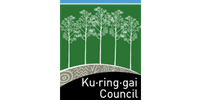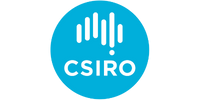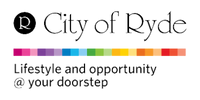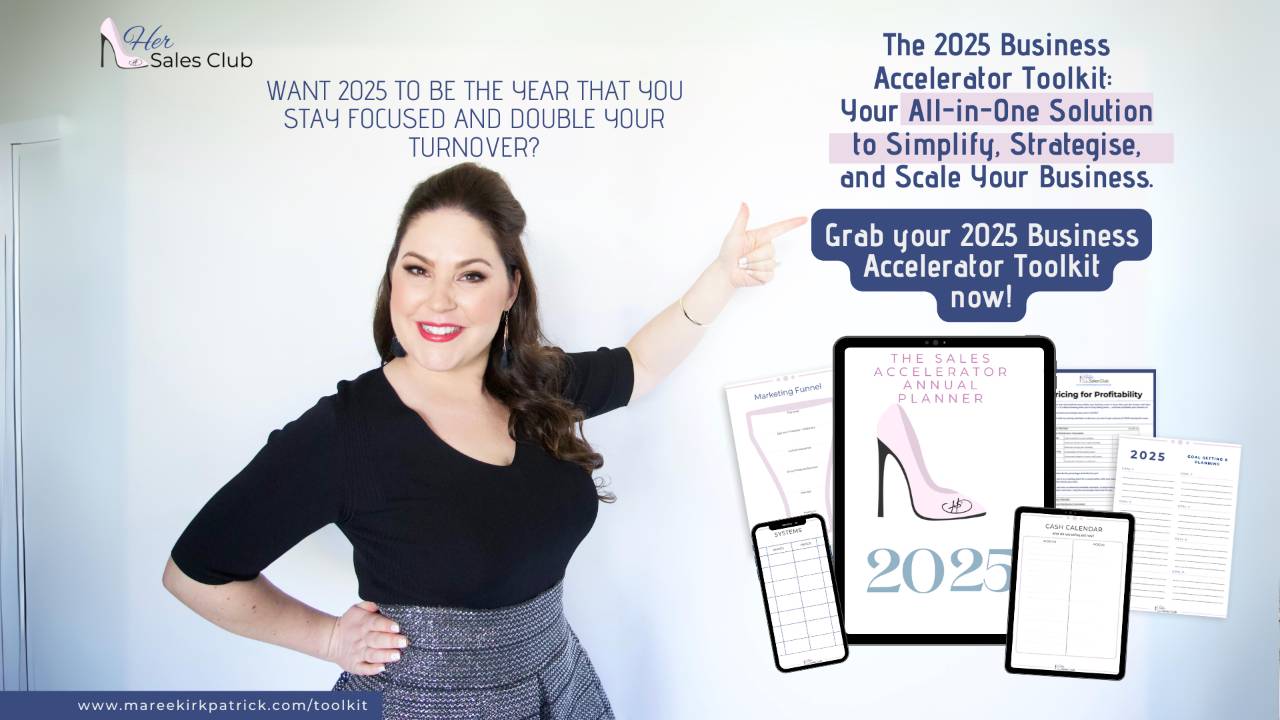Podcast Episode

The episode delves into four common mistakes businesses make regarding USPs: thinking they don't have any, being too generic, trying to appeal to everyone, and not communicating clearly. We also explore pragmatic steps to identify your USPs by looking inward and outward, focusing on what makes you uniquely valuable to your target audience.
Maree Kirkpatrick breaks down how truly understanding USPs can transform your business presence, ensuring your messaging resonates. By the end of this episode, you'll have not just clarity on your USPs, but also a roadmap to effectively communicate them, making your business unforgettable.
Discover Your Unique Selling PointsTRANSCRIPT
Hello, and welcome back to the podcast. All right, let's be real for a minute. We're going to talk about something that is super important but regularly gets overlooked, and it's what? When I ask a lot of business owners what are your unique selling points? They go, mmmm, I'm not too sure.
What does that mean? Or I know that I've put them down somewhere, or they've written them somewhere and they're just not across them. So they're really, really important. And they're what I like to look at as, why would people work with you? Now, you and I both know that there's competition everywhere.
There's noise. There's a lot of noise. There's a lot of marketing. There are constantly people selling to us. Whether it's online, whether it's when we're driving in our cars, whether it is on radios, whether it is listening to music on Spotify.
There’s constantly ads running; there’s constantly people selling to us. But what I want you to think about is what makes you stand out. And I don't really care what industry you're in. The chances are that there are at least 50 other people doing what it is that you do. 50 other companies.
And these days we have the Internet that you can literally Google anything. So if you were looking to get a service for your business, for example, and you Google sales training or copy or web design, chances are that there's going to be a whole heap of competitors that come up. But here's the thing, right? No one does business and the skill set the way that you do. There are plenty of other sales trainers out there.
I know I'm not the only one. I'm very aware that I'm not the only one. But I know that there’s not a lot of sales trainers that do it the way that I do it, with that customer service, with the lack of hustle and salesiness that a lot of people are trained in. And so when I talk to people, I'm really clear on what my unique selling points are. I know why people would work with me over other people.
So if you've ever caught yourself thinking, Oh, what do I need to do just to stand out? Or how do I get more clients and really be able to be different from my competitors out there? Today's episode is for you. But by the end of today, I want you to be able to have clarity around what makes you unique and how do you communicate that so that your audience gets it. The unique selling points should be all across your marketing should be all across your websites.
It should be in the way that you communicate in your messaging and all of that. And we'll go through that a lot more as we dive in. So let's get into some juicy stuff that I've got to share with you, and trust me, you don't want to miss this. Listen all the way through to the end. So let me start off by saying what is a unique selling point.
A unique selling point,, or a unique selling proposition, depending on which way you look at it. I always say unique selling point cause it’s easier, and you know, let's keep it simple. But it is that thing that makes you different from everyone else in your space. It's not about being better than your competitors. It's about being different and being able to articulate the differences easily and effectively so that your audience understands it.
Think of it this way. Your unique selling point answers the question, Why would someone choose you over anyone else? And here's a hint. It's not going to be because you're cheaper. It's not going to be because you're faster.
It's not going to be because you're more qualified. People don't buy based on what you think is impressive. They buy based on how you make their lives better, their work easier, things more exciting, bringing in more feelings, all of that. But the mistake I see so many people make is trying to compete on price or generic claims. Like I care about my clients.
I've been doing this for 10 years. I go above and beyond. I always take that extra step with my clients. I always over deliver great. But that's not a USP.
That is not a unique selling point. That is just a part of you doing business that's just showing up and doing your job. The unique selling point is what makes you unforgettable. And here's the thing, right while we dig into this, if you are a service based business and there is you as the only person delivering, there's going to be unique selling points about you. But you should also have unique selling points about your business.
Okay? Because our business and us are separate, we're separate entities. We need to stand on our own two feet. So just have a think about that as we go through today. So let's talk about the common mistakes that people make with their unique selling points.
First up, people think that they don't actually have one. If you have ever thought there's nothing special about me, I promise you, you were dead wrong. Every single business, every single person has something unique about themselves it's just a matter of digging in and diving deep and figuring what it is and then looking at how we can articulate that for our clients. Okay?
So mistake number one is thinking that you don't have any unique selling points. Mistake number two is being too generic. So I've already mentioned this, but it's worth repeating. We care about our clients is not a unique selling point. It's customer service.
It should be the way that you do business anyway, right? Caring about our clients is not like gold star for you. It's common courtesy. It's being a good human. It's being good at business.
It is not a unique selling point. If your unique selling point sound something sound similar to something or anyone else in your industry, I want you to dig deeper, okay? I want you to think about what makes you stand out. And do you know what? Here's a little side note.
When I go shopping for things, whether they are home appliances, business services, anything I'm always saying to people, Why should I work with you? Why should I buy from you over someone else? And it allows them to have the opportunity to actually sell me, but it also allows me as the consumer to sit back and think about is this business right for me. Do I want to hand over my money to them? Do I want to spend time with them?
What does that look like? So I don't want your unique selling points to be too generic. And I also want you to make sure that you are actually articulating them. Don't just think that everyone knows Okay, mistake number three try to appeal to everyone.
Oh, the joys of business. I know when I first started in business, I was like, Don't worry, I can help everyone with sales. I can help any business from a sales perspective. And to a certain degree, it was true. But I didn't want to help everyone.
I didn't want to be appealing to everyone. Because I know, and I know if you've been listening for a while, you've probably heard me harp on about this. We don't want to work with everyone. We are not everyone's ideal client. Not everyone is our ideal client.
So we want to be really clear: Who is it that we want to appeal to? We don't want to appeal to everyone. So if you are trying to appeal to everyone, I want you to get really clear and focus on what your unique selling points should be for your ideal clients. They need to resonate with your ideal clients, not with everyone. Your specific ideal clients.
What I call your Sally. So your unique selling point should be laser-focused for your ideal client. The ones that actually want to work with you, not just everyone with a credit card or anyone that's willing to pay you, I'm sure. And I'm going to get a little bit ranty here. And once again, not freaking apologising for it.
I am sure that every single person listening to this, if you're a business owner, has had that client that you have been sitting there going, This person is normal. Ideal client. I don't want people like this. And I'm sure on the other scale of that, you've had clients where you're like, I want another 100 more of her. She's brilliant.
I love it. Lights me up. I get off the calls, I'm strutting down the street, and I'm wagging my tail like a little happy puppy dog. Right? So we want to make sure that we are appealing to our ideal clients and those people that we want to work with.
Okay, not everyone. Mistake number four is not communicating it clearly. Now, when I first start working with people from a VIP perspective, I will do a complete analysis on their business, and I will go through their website, I will go through their social media, and I get them to send me through documents that they send through to clients, emails, all of it, right? And what I'm looking for is have they clearly communicated their unique selling points so that they are front of mind and so clear that you cannot miss them. I want to know, does everyone else looking at your staff know what makes you unique?
And if your audience doesn't, then we haven't articulated properly, and your unique selling points aren't working. They need to be front and center, clear your marketing. Everyone who lands on your website or Instagram should be able to figure out in the first three to five seconds why they want to work with you. And if they can't, it's time to tweak your messaging and your unique selling points and maybe both. Okay, now I don’t want to be Debbie Down and be like here are all the mistakes, thinking I don't have one.
Being too generic, trying to appeal to everyone, not communicating here clearly. I want to actually tell you how you can find your unique selling points. This is the good stuff. How do we actually figure out what our unique selling points are? And I have some steps for you.
Step number one is to look inward. Ask yourself, what is your secret sauce? Why do people come to you? What makes people stand out? What makes people attracted to and stand out?
I don't know how many times I've gone to events,, and I'm still getting my head around this, right? Like, I'm not perfect, okay? I still am growing and learning day in and day out, but people will come up to me and say to me, Ohh, I really love your energy. And I'm like, I don't understand that. What does that mean?
I really love your energy. And do you know what it is, or what I think it is? It? It is that I'm really passionate, and I'm really driven to help every single business owner I come in contact with. Whether I meet you down street where we are caught up in an elevator having a quick chat about business or anything, I want to be able to see what I can do to help you move forward. That is one of my secret sauces. That's one of the things that I know works really well for me.
My energy, my passion, my drive, my rantiness. I mean, you're sitting here listening to me, right, for a reason. There's got to be something that makes Yeah go, Yeah, she know stuff, and I stand out enough for you to go, She's worth listening to. So what do you, when it comes to your secret sauce, what do you do differently from others in your space? What feedback do you hear from clients?
All the time, over and over and over again. And if you don't have that feedback, send out an email and ask for it. Put up a poll in a group, ask for some testimonials, whatever that it is, whatever you need to do to gain that feedback from your clients. It is liquid gold. And then also look at what part of business am I most passionate about.
What do I love doing that lights me up that I want to do over and over and over again, day in and day out? And here's a little extra fun tip. Think about the things you naturally do that might seem really obvious to everyone else, but they're mind blowing to other people. Sorry. They may feel.
Think about the things you naturally do that you feel might be obvious to you, but are mind blowing to other people. That's often where your unique selling points lie. Okay, so step number one, look inwards. Step number two is tis to look outwards. This one's about understanding your audience.
Who are you serving? What do they value? What do they value? And how can you help them articulate that so that the meeting of their values and your business are aligned? And then obviously we want to look at what problem are you solving for them.
Because what I want you to be really clear on if you only take away one thing from today, right? If you're sitting here listening, going Maree, this is all great,, and you're trying to absorb all the information, I want you to just take this one thing away. If nothing else, your unique selling points aren't about you. What do you mean? They're not about me.
They're not about you.
Your unique selling points should answer the question of So what? So a lot of my clients, when we start doing this together, they'll say, Well, I've had 15 years of experience X, Y,, Y, and Z. And I'll say, so what? What does that mean for Sally? Or they'll say, I've worked with big brands; great.
What does that mean for Sally? Why should she care? Why should that stand out for her? Why should that answer the question of is the right person to work with? So it's not about you.
It's about looking what that transformation that you’re creating with your clients. Dig into what they want and how they want you to deliver it in a way that no one else does. Okay? And then step three, what we want to do is combine those two worlds. The inside of it and then the outward look of it.
Combine the two, and this is where the beautiful magic happens. That's what makes you unique and be able to connect with your audience and what your audience needs. Maybe you're the designer who specialises in branding for eco-friendly businesses, or maybe you're that coach who helps introverted entrepreneurs build confidence in sales. See how unique that is? See how clearly at is articulated.
If I put that on a website, then those introverts would be like, Yep, great that's what I want. If that resonates with your business. Obviously,, each business is going tog to have different selling points, different unique selling points. Ha ha ha. So what is it that you can create and develop from your unique selling points?
Your unique selling points is what sets you apart, right? And it makes your ideal clients feel and acknowledge, wow, this is exactly what I need. This is exactly what I have been looking for. And unique selling points come across in so many areas. Let me give you a prime example.
My eldest is transitioning from primary school into the school that he will attend for his high school. And as you do, I went and looked at probably maybe five or six different schools, right? And yes, there’s different selling points on cost, location, school sizes, ands, and what sort of activities they offer. All that sort of stuff can be unique to the school, but it can also be the same across every other school. The difference was in one school that I walked; they spoke so heavily about values and community.
And that may sound really obvious, but not all schools were like that. And I remember so clearly the principal saying to me, not to me when he addressed everyone and he said, You want your son to make that good decision on a Saturday night to not get in the car with someone that has been drinking. We want to develop our kids to make really good value-based decisions. And I was like, shut up and take my money. Right?
They're so clear on what their unique selling points are about. Their values, their community, their overall feel, and vibe of that school. And it doesn't matter how many times I walk into school; that vibe and that feeling is still there. It was there on the open day when I first walked in, but it was also there on the day that the school wasn't on show. Right?
It is a selling point that is filtered through all the kids there, whether it's the way that they speak, the way that they communicate, the manners that they use, all of that—that is part of the school's unique selling point. That's what makes them stand out. I want you to be really clear on what your unique selling points are and how you can fine-tune them. I also, and some people will say, will say to me, Okay, Maree, how many unique selling points do I need? I say at least 10, right?
The reason why I say at least 10 is because then we can narrow it and fine-tune it down to our top three to five, but we can use those 10 across different areas of our business. So across our websites, across our presentations, depending on who it is that we're speaking to or presenting to at that moment, we can adjust and tweak it. But if you've got 10, it gives you a really good range of unique selling points that we can use across your business. Let me give you some other real-life examples that may be a little bit more familiar to you. Let's look at the good old small business of Apple.
No, obviously it's not a small business; it's a giant business, but unique. But Apple's unique selling point isn't about selling computers. It's not about selling computers. You may think it's about selling computers or phones or tech, but it's about creating, beautifully designed experience. When you have one Apple product, connecting them all to everything else is really easy.
Everything else, everything just screams simplicity and innovation. Right? They're so clear on what that looks like. And it's the reason why they can charge really good money for their stuff because they're so clear on what makes them stand out in their industry.
The other selling point that I want you to be aware of is that maybe your unique selling point is a process or a personality or a framework or a strategy that you've developed or specific results that you deliver.
For example, one of my clients has a program, and her unique selling point is focusing on women that are perimenopausal, that are focusing on getting more energy naturally. So it's not about all the drugs and all that sort of stuff. It's about fuelling your body and balancing out hormones to have enough energy during a certain period of their life. That speaks directly to her ideal client, and she uses it in her marketing. And instantly people know who she is and what she does.
And as we go through this, and the more I talk about it, right, I want you to understand that your unique selling point doesn't have to be groundbreaking. It doesn't have to have all the right fluffy words, or it wasn't even fluffy. What did the lady say? Someone asked me on a call once. Oh.
She said, What are the best buzzwords that I can use in my unique selling points? I'm not about buzzwords. I'm about really clear messaging and articulating in simple language so that everyone understands. Your messaging and your unique selling points don't need to be really complex and jargon-focused. They just need to resonate with your people, and they need to be across everything that you do.
Presentations, networking, websites, social media, lives—all of it. Okay? And because I'm that woman that is all about, like, let's get stuff done, I want to give you a quick action plan. Let's wrap it up and give you a quick action plan to help you uncover your unique selling points. Number one, write down five things you do differently or do better than others in your industry.
Now, this point may take you a little bit of time. It may be what I call some shower processing time, because I've solved all the world's problems in the shower. But I remember when I first started, when I started my first business, the reason why I did it was because I was helping other people. When I was in corporate, I was helping other business owners. And I thought, man, I could probably do this a little bit better.
I know it sounds a little bit egotistical and a bit, you know, blowing your own trumpet, but I honestly sat there thinking I can do this in an easier, more efficient, organised way than other people. And I think I can have a lot of success in it. So I want you to think about what those five things are that that you can do differently or better than others in your industry. Not the same. Different.
Better and different than others in the industry. Number two, ask your clients or audience what they love most about working with you or following you or absorbing your information. Sometimes your unique selling point is something that you're too close to see yourself. And so it's okay to ask for other people's feedback and ideas and get an understanding of what it looks like for them. Like, I would never have considered my energy and the way that I come across as one of my unique selling points until people kept saying it over and over and over again.
For me, it was just like, I don't know, sometimes we're just too close to see it. And then number three is I want you to put them into single sentences. One or two sentence max per unique selling point. Okay. How do you help people, that specific audience, achieve specific results through your unique method or approach?
And then once you've got your sentences, make sure they are absolutely everywhere. Your website, social media, bios, email signatures, presentations, and, networking they should become like a second language for you. Let the world know what makes you the person that they are needing, what makes you stand out. Okay, so you've got your three-step action plan there. I also have a tool for you.
If you need one for your unique selling points, it is in her sales hub. All you need to do is go to the Mareekirkpatrick/hub, and unique selling points will be there. It will. There's a video training to help you step through what you can do to uncover your unique selling points. And there's a document there in there for you as well.
And so, my beautiful people, that is a wrap on today's episode. I hope you are feeling inspired and ready to actually sit down and be really clear on what your unique selling points are. This can be a whiteboard brain dump session for your business. Sit down, have a glass of wine with a couple of your business besties, and understand what it is that makes you stand out, what makes you an industry leader. So get in there and uncover your unique selling points, and I promise you it will make a big difference in the way that you sell, the way that you come across and the way that you stand out in your industry.
Okay? You don't need to be better than anyone else. You don't need to copy anyone else. You just need to be you, uniquely, authentically you. And then articulate that so we can get you to stand out even more.
If this episode hit home from you for you, I'd love to hear about it. I had a beautiful person give me some great feedback on the pricing strategies podcasts that she loved, and she went and implemented things pretty much straight away, which is freaking awesome. But I would love you to share it with me on Instagram, Mareekirkpatrick. Take a screenshot if you dare. And I'm also giving out a gift to people that do share these episodes to say a big hearty thank you for all your support as we go through this, and I would love to know, tell me your unique selling points.
Maybe I can give you a couple of pointers on your own specific ones. I can't wait to see what you come up with if there's any support or you're feeling stuck. As I said, check out H Sal's Hub with the Unique Selling Points framework in there. It will help you develop them and walk you through that process step by step so that you can start standing out and converting like the amazing business owner that I know you are. Until next time, go spread your magic, share your value, and show the world why you are the best person to work with.
Talk to you soon.
COMPANIES WE HAVE WORKED WITH:














